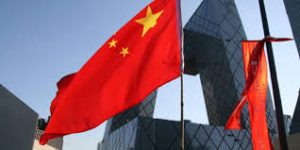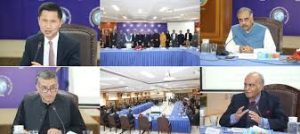ADB for promoting multiple modes of transport for freight in Pakistan

Islamabad: The Asian Development Bank has stressed promotion of multiple modes of transport for freight in Pakistan including Railways and inland waterways to reduce time and cost of trade along Central Asia Regional Economic Cooperation (CAREC) member countries.
The ADB’s annual report titled “Carec Corridor Performance Measurement and Monitoring” suggested that greater adoption of freight on rail and inland waterways would reduce freight costs and boost low-unit value exports such as agricultural produce.

“Pakistan’s over-reliance on road transport increases the cost of freight and is not sustainable, the report that evaluated facilitation of trade along Central Asia Regional Economic Cooperation (Carec) member countries said.
Pakistan Railways has created a freight transportation company that focuses on cargo and started freight train services between Karachi and Lahore.
Private investment could be encouraged to attract more funding for a greater number of locomotives and rail cars, to increase the capacity of this rail transport option.
Furthermore, the report also suggested creation of a national inland waterways transport authority to spearhead inland waterways.
Pakistan continues to face severe challenges: for example, road transport moves 94 percent of total freight in the country, yet it remains the second most expensive mode of transport (after air).
Following the approval of its National Transport Policy in 2018, Pakistan embarked on a series of reform and initiatives to address structural inefficiencies and impediments, to increase exports through lowering cost and lead time of transportation.
One important reform was mutual agreement between Afghanistan and Pakistan in September 2019 for both sides to operate 24/7 at Torkham BCP.
Intended to increase bilateral and transit trade, border-crossing times were immediately shortened.
The average waiting time dropped from 12 hours at Peshawar and 19.5 hours at Torkham in July-August 2019 to 6 hours in September and 8.6 hours in October at Peshawar, and 5.6 hours in September and 6.6 hours in October at Torkham.
The report added that Pakistan made notable achievements in 2019 in advancing transit trade.
The CMR-Convention of Contract for the International Carriage of Goods by Road-came into force on 28 August 2019.
Furthermore, the Ministry of Commerce notified on October 15, 2019 that Gwadar seaport—in addition to Karachi seaport and Port Qasim—is able to handle Afghan transit trade.
This will address long dwell times at Karachi seaport, as identified by the Corridor Performance Measurement and Monitoring (CPMM) data, where customs clearance controls can take 4–5 days.
The Federal Board of Revenue (FBR) launched the national one window and authorized economic operator program, to help speed up border clearance.
The report also suggested to implement the national one window system and port community system (PCS) to reduce cargo dwell time in seaports.
The CPMM has consistently identified that containers for Afghan transit trade experience significant dwell time in Karachi: implementation of a national single window system, proposal for which has been drafted by Pakistan authorities, and PCS should considerably decrease dwell time.
The FBR and Pakistan Customs are developing an (Authorized Economic Operator (AEO) program which will adopt risk-based management and improve the efficiency of cross-border trade.
Once established, Pakistan’s AEO program could explore opportunities for mutual recognition arrangements in AEO with other Carec member countries.





